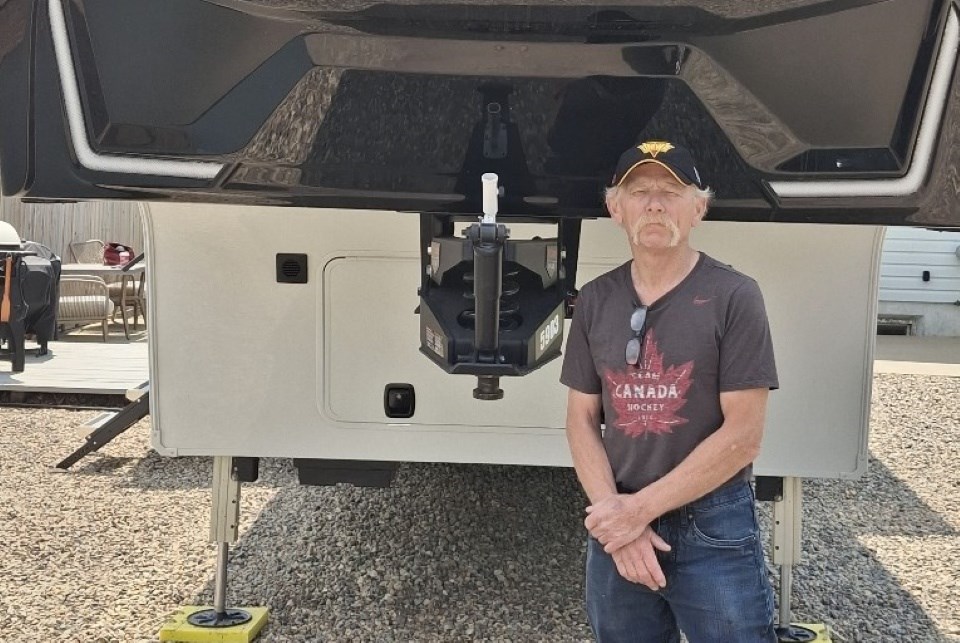ESTEVAN — Sammy Dryden had a later start to his mining career than many of his colleagues in the Estevan area, but he still saw a lot of changes.
Dryden began his career as a mine equipment mechanic on Sept. 18, 1995, and he retired March 31 of this year, giving him 29 1/2 years of experience. He said it was time to retire because he's approaching 70 years of age, and he thought his career was long enough.
"There was no special reason," Dryden said in an interview with SaskToday. "I wanted to take some time for myself."
Dryden recalled he went to work in coal mining because he wanted to get out of the oilpatch. He had been driving a truck and moving drilling rigs, pumpjacks and pipe for companies like Sam's Trucking and Dayman Trucking.
"A mechanic's job came up at the mine. I applied for it, got interviewed and got hired. Basically, it gave me more days off to be with family and friends and whatever else," said Dryden.
When he first started at the mines, he believes, there were five mechanics. He initially worked for Luscar Coal in a big blue structure south of the city near Highway 47. From there, the local mining operations were sold to different companies and he eventually wound up working for Westmoreland Mining LLC at a site near the Shand Power Station.
"I loved being a mechanic. I enjoyed the work. Working on the big equipment was nice, a lot better than working on cars. It was a lot easier, too. You don't do much by hand. Everything's pretty heavy, so you're doing it by forklifts or cranes or whatever else," said Dryden.
At the start of his career, there wasn't an orientation session, either. In his first day on the job, he walked into the building and his supervisor showed Dryden the shop.
"At that time, they had just bought a brand-new Kress truck and they were putting it together in the shop," recalled Dryden. "We walked through the shop, they showed me where it was, and said 'You'll be working with these guys today. Have a good time.'"
The Kress truck he worked on was a unibody vehicle with an engine in the back, cab in the front and box in the body.
He said he didn't have the benefit of a multi-day orientation course or any of the other programs. He just had to look after himself.
"When I first started over at the other site south of town, I think the biggest truck we had was a 60-tonner, and they were old Ucluelet tractor-trailer units, and they were pretty noisy things. There was not a lot of computer stuff in them. And then we went to the Kress trucks, which started the computer stuff. They were fairly reliable."
Then they shifted to Caterpillar units. Dryden described them as bigger tractor-trailer trucks that carry 160 tonnes and have bigger end dumps than before. And at one point in time, they had diesel-electric LeTourneau motors, which he said were pretty interesting to work on.
"Lot of computer knowledge now. If you haven't got some computer knowledge, you're pretty much done, because everything is sensors. Oh, it's just crazy. Just like your vehicle. Sometimes even worse," said Dryden.
When he first started, Dryden said he was using air guns and other tools. Now they have hydraulic and electric torque wrenches, so he didn't have to pull and strain himself to tighten bolts; he just let the machine do it all. Dryden said electric tools are gradually getting better.
"If you buy quality stuff, it's actually more ergonomically friendly for you, so they try to get that stuff in there, too," said Dryden.
Dryden also spent 10 years on the United Mine Workers of America Local 7606's executive as a safety co-chair. He said he learned a lot of interesting things and was able to travel and meet different people. He was also involved with a number of activities, including barbecues for other unions in front of the UMWA hall and the Day of Mourning service at the coal car.
Dryden said he enjoyed the work with the union most of the time but sometimes it was challenging.
He recommends a career in mining to others, but he acknowledges it's a different line of work. Employees are on shift work unless they have enough seniority to get a typical day job. When he first started, he was scheduled for a variety of hours.
"If you're used to eight or 10 hours a day and not working nights, you might have to think about what you have to go through to get out there, because working nights isn't for everybody. It's hard on them, and some guys can't sleep during the day, which gives you a bit of trouble when you're on night shift."
He still talks to a lot of people he worked with and he still sees a lot of them around town. Dryden is spending more time camping, relaxing, and visiting local attractions. And he's looking forward to travelling more in the winter.




